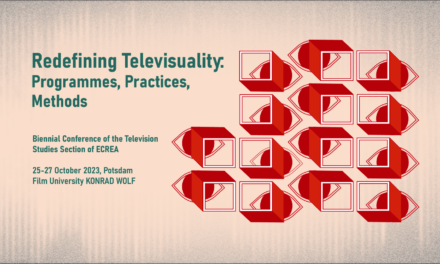(First Published on 14 December 2012)
Back in January America was all abuzz with the largely-media-created controversy over whether or not the quintessentially British Ricky Gervais had gone too far with his humor as host of the 2011 Golden Globe Awards.
What can be got away with on the public airways has been a significant question from the beginnings of American television. From the start the creative individuals making TV have done battle with The Suits, Standards and Practices, public taste, and the inherent Puritanism of American culture.
On one of the extras on the Seinfeld DVDs, co-creator Larry David, now working free from all restraint on HBO’s beyond-the-pale Curb Your Enthusiasm, explains how he  and Jerry Seinfeld nevertheless managed to get away with the infamous and unacceptable on one of American prime-time television’s greatest sitcoms. On episodes like the notorious “The Contest” (4.11), for example, in which Jerry, Elaine, George, and Kramer engage in a bet to see who can go the longest without masturbating, they “worked the refs.” In American sports, especially basketball, it is possible, according to the received wisdom, to get the desired call from a referee late in a game by contesting meaningless decisions early on. Seinfeld’s showrunners discovered that if they fed the NBC censors smutty ideas they never intended to use and which were swiftly rejected, they were often able to slip past the softened-up gatekeepers equally naughty, or even naughtier, story ideas later.
and Jerry Seinfeld nevertheless managed to get away with the infamous and unacceptable on one of American prime-time television’s greatest sitcoms. On episodes like the notorious “The Contest” (4.11), for example, in which Jerry, Elaine, George, and Kramer engage in a bet to see who can go the longest without masturbating, they “worked the refs.” In American sports, especially basketball, it is possible, according to the received wisdom, to get the desired call from a referee late in a game by contesting meaningless decisions early on. Seinfeld’s showrunners discovered that if they fed the NBC censors smutty ideas they never intended to use and which were swiftly rejected, they were often able to slip past the softened-up gatekeepers equally naughty, or even naughtier, story ideas later.
Such manipulation is, of course, not unique to American television. On a special feature on the DVD of Preston Sturges’ 1944 screwball comedy Miracle of Morgan’s Creek, we learn that the ingenious writer/director likewise worked the refs, in his case not NBC’s Standards and Practices but the disapproving Hays Production Code Office, in the process (according to Sturges’ widow Sandy) honoring the letter of the code while entirely violating its spirit (“Censorship: Morgan’s Creek vs. the Production Code”).
 Someone should do a book on the ingenious ways television writers have found to say (and show) really x-rated and sometimes blasphemous things in ways that would find their ways past the censors. This Telegenic can only hint at what such a study might contain.
Someone should do a book on the ingenious ways television writers have found to say (and show) really x-rated and sometimes blasphemous things in ways that would find their ways past the censors. This Telegenic can only hint at what such a study might contain.
As film historian Ed Sikov explains, the code was like the sonnet form, a strict blueprint which actually inspired the work of creative geniuses like Sturges and Billy Wilder to become all the richer. With malicious genius aforethought Sturges, like David a half century (and another medium) later, would put in inconsequential stuff knowing it would be taken out so the Haysers would not notice the good stuff they really wanted to leave in. Morgan’s Creek’s lead actor Eddie Bracken recalls the entire cast and crew howling with laughter at the Hays Office’s astonishing stupidity. In his review of Sturges’ new film the famous novelist and film critic James Agee would observe that the Hays Office had been “raped in its sleep.” Today’s television creators are likely howling with laughter as well at the obliviousness of the overseers they outfox at every turn.
 Salacious TV. Any volume on Getting Away with It on TV (GAWITV) would have to include a central chapter on Joss Whedon (Buffy the Vampire Slayer, Angel, Firefly, Doctor Horrible’s Sing-along Blog), and indeed a forthcoming book of mine does devote many pages to his supremely subversive naughtiness. I will limit myself here to only three examples.
Salacious TV. Any volume on Getting Away with It on TV (GAWITV) would have to include a central chapter on Joss Whedon (Buffy the Vampire Slayer, Angel, Firefly, Doctor Horrible’s Sing-along Blog), and indeed a forthcoming book of mine does devote many pages to his supremely subversive naughtiness. I will limit myself here to only three examples.
Educated in England, Whedon would incorporate English profanity into Buffy with nary a complaint from his American overlords. So we find characters, in particular the Victorian era vampire Spike, regularly uttering “wanker,” “bugger,” “bint,” “shag,” “sod,” “ponce,” “bollocks”— words whose American equivalents would be much more difficult to gain approval.
In “The Zeppo,” a Season Three episode (written by Dan Vebber) of the always-risque BtVS, we have the following dialogue in a scene in which Xander loses his virginity to bad girl Faith:
FAITH: (smiles sexily) You up for it?
XANDER: (nods) Oh, I’m up. I’m suddenly very up. It’s just, um … I’ve never been up with people before.
FAITH: Just relax … And take your pants off.
XANDER: Those two concepts are antithetical.

 That Up With People was, of course, a schmaltzy Christian singing group and “moral re-armament” organization made Xander’s reference to his first-ever non-solo erection all the more delicious.
That Up With People was, of course, a schmaltzy Christian singing group and “moral re-armament” organization made Xander’s reference to his first-ever non-solo erection all the more delicious.
Or recall the moment in “Who Are You” (4.16) in which the fresh-from-a-coma Faith announces her realization that Willow has become a lesbian with the words: “So Willow’s not driving stick anymore. Who would have thought?” I could (and do in my forthcoming book) cite scores of additional examples of Whedon, like Sturges before him, making a laughingstock of the censors while engrossing us with his, and his creations’ off-color wit.
Whedon, of course, owns no monopoly on such x-rated drollery. In the second episode of sixth season of the hit CBS sitcom How I Met Your Mother (in “Cleaning House” the gang helps womanizer Barney Stinson [Neil Patrick Harris] pack up his childhood possessions), we find the following breathtakingly faux-obscene exchange between Barney and the series’ main character Ted Moseby.
Barney: Ted, that thing you’re packing is way too big to fit in that box.
Ted: That’s what your mom said.
Barney: How dare you!
Ted: No, she actually said that.
Would this exchange ever have made it to air if it had not given with one hand while taking away with another?
The double-entendre and the sitcom may be natural partners, [1]As the almost always insightful TV Tropes website suggests: A Double Entendre is a word or phrase which can be taken at least two different ways. Archetypically, one meaning is obvious, literal, and … Continue reading
but sitcoms cannot claim sole ownership. Doubling can be found elsewhere in American television as well. Recall that moment, for example, in FOX’s X-Files-reborn-Fringe, now one of the best shows on TV, when adorable mad scientist Dr. Walter Bishop (John Noble) arrives at a fringe scene that reminds him of his past:
Kent Street! I used to frequent a massage parlor around the corner. I used to get off right here! (“The Box,” 3.2)
Get off? Kent Street is a trolley stop, but massage parlors, of course, offer an entirely different kind of “happy ending.” Why only a dirty mind would even notice the salaciousness!
Television Blasphemy. Since I have already written about the depiction of religion in American television in a previous Telegenic, noting there that American audiences seldom take kindly to unorthodox depictions of the dogmatic, I will limit myself here to merely two extraordinarily blasphemous moments from the last decade of American television.
In only the second season of the premium channel masterpiece The Sopranos (“D-Girl,” 2.7), an about-to-be-confirmed A.J. Soprano, the none-too-bright son of a mob boss, insists to his father that god doesn’t exist, and Tony responds:
I don’t care if he doesn’t exist, you are still going to kiss his ass.
As already alluded to, the creative team behind such an HBO series can generate such irreverence virtually free of the fear of lighting bolts from above. Still, Tony’s outburst must count high—on the top ten list in fact—in the history of blasphemous utterances, any age, any medium.
Such a list would also necessarily include a moment, just before the November 2008 American Presidential elections, from Comedy Central’s Colbert Report. Playing a clip of an Iowa minister’s invocation calling out the Christian deity to defeat the deities of those supporting Senator John McCain’s opponent, Stephen Colbert (in real life a devout, Sunday-school-teaching Catholic) asked, sacrilegiously and profanely:
Did Reverend Conrad just call god a pussy?
I certainly do not meant to suggest that the naughty, blasphemous brilliance I am calling attention to here is American only. When I taught in the UK for two years I took note of many examples of GAWITV—that time, for example, in the fourth episode of the splendid BBC’s Life on Mars when the Gene Genie and Sam Tyler force their way into the office of Manchester mobster Stephen Warren, where they find him fellating a young man. “How dare you come in here!” Warren growls angrily. “You could have said that to the boy,” Gene replies. He said that—on the BBC! In a series paid for by my television tax pounds! And did not that British import Gervais end his scandalous performance on the Golden Globes in January with this blasphemy, pronounced as the credits rolled, which almost went unnoticed after his jibes at Tom Cruise’s not-outnedness and Robert Downey Jr’s troubled past:
And last of all I want to thank god for making me an atheist.
I do mean to suggest that American television naughtiness and blasphemy must do battle with stricter, stronger, restrictive, and more inspiring institutional forces. Wink wink. Nudge nudge. Say no more?
References
| ↑1 | As the almost always insightful TV Tropes website suggests:
A Double Entendre is a word or phrase which can be taken at least two different ways. Archetypically, one meaning is obvious, literal, and innocent. The other is usually sexual. The Double Entendre’s popularity in comedy stems from the fact that if you don’t get it, you won’t realize something dirty just happened. As a result, clever use of a Double Entendre can keep a show “family-friendly” by allowing children to appreciate the joke on one (non- sexual) level while adults enjoy it on another level. On the other hand, if the Double Entendre fails to be funny on the obvious level, it can result in a show which is “safe” for broadcast in family time slots but which younger viewers do not enjoy. |
|---|





